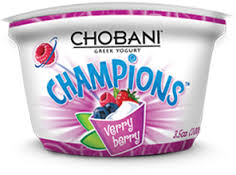
 Cross-posted at WLF’s Forbes.com contributor site
Cross-posted at WLF’s Forbes.com contributor site
On July 12, two different Northern District of California federal judges in two separate food “mislabeling” class actions issued conflicting decisions on an issue that arises routinely in such cases — when should courts decline to resolve disputes which fall under the primary jurisdiction of a federal agency?
While the timing of the rulings may be coincidental, the similarities between the suits are not. As we note briefly in a post below, they are two of over thirty suits filed in the last year in the Northern District of California by a consortium of class action lawyers, some of whom cut their teeth on tobacco litigation. All allege violations of federal food labeling rules, which, they argue, can be enforced through litigation under California consumer protection laws.
Hood v. Wholesoy & Co. Hood claimed that Wholesoy’s use of the term “evaporated cane juice” instead of “sugar” on the ingredient list violates federal labeling rules, and that Wholesoy cannot lawfully call its product “yogurt” because it contains soy. Wholesoy argued in its motion to dismiss that Congress had committed these issues to the Food and Drug Administration’s (FDA) purview, and that because FDA has not clearly stated a firm position on the issues, the court should defer to FDA’s regulatory authority. Judge Rogers, who on July 11 ordered a stay in another food labeling suit (Cox v. Gruma) based on this primary jurisdiction doctrine, ruled the same way in Hood v. Wholesoy. On the use of evaporated cane juice, Judge Rogers wrote that “FDA’s position is not yet settled” and that the draft guidance and several warning letters plaintiffs cited as reflecting FDA’s view on cane juice don’t constitute legally enforceable standards. On whether defendant can use the term “soy yogurt,” Judge Rogers noted “FDA does not appear to have spoken at all.” She granted defendant’s motion to dismiss without prejudice.
Kane v. Chobani, Inc. Kane alleged that Chobani’s use of the terms “evaporated cane juice” and “all natural” on its label, and its promotional claims that its products had “no sugar added,” violated federal labeling rules and were thus unlawfully misleading under California law. In her July 12 order, Judge Koh first analyzed whether Kane had standing to advance her three claims. She found that Kane reasonably relied on Chobani’s evaporated cane juice labeling when purchasing yogurt. However, Kane could not prove reliance on the “no sugar added” claim, Judge Koh ruled, because she didn’t allege she had ever viewed Chobani’s website. Finally, “because the labels clearly disclose the presence of fruit or vegetable juice concentrates,” Judge Koh found Kane’s reliance on “all natural” to be unreasonable.
Judge Koh next assessed whether federal rules preempted Kane’s remaining evaporated cane juice claim. She disagreed with Chobani’s implied preemption arguments. As to express preemption, she “somewhat reluctantly” agreed with Kane’s argument that FDA’s draft guidance on cane juice (mentioned above in the discussion of Hood) stated FDA’s position on the issue, and thus Kane’s lawsuit enforces that standard in a way that does not conflict with federal rules.
The court finally turned to Chobani’s argument that FDA had primary jurisdiction over matters involving evaporated cane juice labeling. Contrary to Judge Rogers’ opinion on that issue in Hood, Judge Koh decided that FDA’s position on cane juice was stated clearly in its draft guidance and warning letters, and thus Kane’s claims would not usurp the agency’s authority.
Judge Koh did, however, invoke the primary jurisdiction doctrine to dismiss Kane’s claims that Chobani’s use of cane juice violated a federal Standard of Identity for “yogurt.” FDA, she wrote, is in the process of developing a new yogurt Standard of Identity, so the court would defer to its process on that.
Three days later, on July 15, Judge Koh denied Kane’s motion for a preliminary injunction against Chobani’s sale of products with “evaporated cane juice” on the label.
Disqualification for Kane’s Lawyers? Activity in Kane continues on July 25, when Judge Koh will consider Chobani’s motion to disqualify the consortium of lawyers representing Kane. Chobani argues that Kane’s lawyers hired a federal labeling law expert whom Chobani had previously retained and who had participated in discussions with Chobani’s legal team about litigation strategy. The expert allegedly informed Kane’s lawyers that she could not consult on the Kane v. Chobani case, but, as Chobani argued, her work on the lawyers’ other similar or identical lawsuits would clearly assist Kane in her suit against Chobani. In their response to the disqualification motion, Kane’s lawyers predictably paint a different picture of the expert’s hiring and argue that neither the facts nor the legal standards justify their removal from the case.
Implications of Hood and Kane. Defendants in the ongoing wave of food mislabeling class actions have found little success when deploying the primary jurisdiction doctrine. It is unclear whether Judge Rogers’s Cox and Hood rulings, as well as Judge Koh’s dismissal of the yogurt Standard of Identity claim in Kane, signal increased recognition of the doctrine in the Northern District of California (a.k.a. “The Food Court”). But with that court issuing conflicting rulings on the same day and on the same issue, the time may be drawing near when the Ninth Circuit, for better or worse, will weigh in on the primary jurisdiction doctrine.
